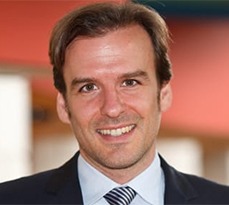Entrepreneurs who expose flaws like insecurity can boost investment by attracting investors with similar flaws, finds study co-authored by Dr Jochen Menges of Cambridge Judge that won a top Academy of Management award.

The stereotype of an entrepreneur’s elevator pitch for investment calls for a perfect presentation by a polished and prepared performer. Yet some of the most successful company founders – think of Richard Branson and Bill Gates – have in fact come across as nervous and somewhat nerdy, and certainly far from flawless.
A new study that just won a top award from the Academy of Management helps explain why.
The study identifies how entrepreneurs who expose their own flaws can increase funding for their ventures by attracting similarly flawed investors, who include angel investors and people contributing to crowdfunding efforts.
“Lay wisdom and past research seem to assume that an entrepreneur who minimises weaknesses will be most influential,” the study says. “Our research challenges this assumption and illustrates when and why flaws may be more compelling than perfection.”
Not all flaws are created equal
The research distinguishes between what it terms “bridging flaws” (insecurity, for example) that highlight a deficit in a supposedly desirable trait (confidence) and “distancing flaws” (arrogance, for example) that highlight an excess of such a desirable trait – and the study finds that when investors identify with an entrepreneur’s bridging flaws will they boost investment in a venture.
“We conclude that while entrepreneurs may benefit from exceptionalism, some succeed not despite but because of their flaws,” the study says.
The study won the Best Paper with Entrepreneurship Implications Award from the Organizational Behavior Division of the Academy of Management at its annual meeting in Seattle in August. The judges cited the paper’s “novel combination of archival and experimental analyses” in explaining subtle dynamics that affect entrepreneurial funding decisions.
The findings draw on two experiments. In one, participants played an online investment game in which they distributed investments between 18 different start-ups whose CEOs disclosed no flaw, a bridging flaw of insecurity, or a distancing flaw of arrogance. In another, they were then asked to choose between two different start-ups whose CEOs were described as having the bridging flaw of being disorganised or the distancing flaw of being too order.
Reality show ‘Shark Tank’ is featured in study
The study also examined evidence from the transcripts of five seasons (52 episodes) of US reality television show ‘Shark Tank’ (a similar UK programme is ‘Dragons’ Den’) in which investors back or reject an entrepreneur’s pitch.
The study acknowledges previous research findings that entrepreneurs who highlight their strengths can boost investment for their ventures, but notes that these insights “are somewhat at odds with the reality that it is often the insecure, disorganised, and somewhat nerdy entrepreneurs that succeed.”
The study thus develops a model for when entrepreneurs who expose flaws can use that to their advantage in acquiring greater funding.
“The assumption has long been that confidence is all-important in attracting investment, but we’ve seen the huge success of people like Richard Branson, Bill Gates and Nike co-founder Phil Knight who have often come across as shy and even awkward,” says study co-author Dr Jochen Menges, who teaches at both Cambridge Judge Business School and the University of Zurich.
Flaws like insecurity can breed ‘identification’
“So we explored deeper and found that certain types of flaws such as insecurity can have a positive effect on investment because it breeds identification among most investors who share such very human flaws. Other types of flaws such as arrogance don’t bolster identification, so they don’t attract more investment from investors who share such a characteristic – and that may be because arrogance indicates that a person is perhaps too self-sufficient.”
In the first experiment, participants (“investors”) were given $10 to invest among 18 different startups. Investors who self-identified as insecure invested on average 11.5% more in entrepreneurs who exposed a bridging flaw than in entrepreneurs who exposed a distancing flaw, and 5% more than in entrepreneurs who exposed no flaw. Thus, entrepreneurs who exposed a bridging flaw received $408 from similarly insecure investors – compared to $287 for those who exposed a distancing flaw and $355 for those who exposed no flaw.
The authors suggest that their findings may invite analysis of whether exposing flaws in other business contexts could be beneficial.
“Perhaps leaders in a variety of contexts need not feel pressured to minimise their negative attributes, but instead could selectively expose them to similar others to increase their influence. If so, this would overturn the notion that followers ‘cannot build an aura of magic’ around leaders who appear human and fallible and that the best leaders appear extraordinary or even superhuman to their followers.
“Not all flaws are created equal, and entrepreneurs and other business leaders should be discerning in exposing flaws, considering both what kinds of flaws are likely to create social bonds as well as the attributes of the audience with whom they choose to share their flaws.”
The study
The study – entitled “Investors increase financial support to Entrepreneurs who share a personal shortcoming” – is co-authored by Lauren Christine Howe of the University of Zurich and by Dr Jochen Menges, Associate Professor in Organisational Behaviour at Cambridge Judge Business School also of the University of Zurich.


